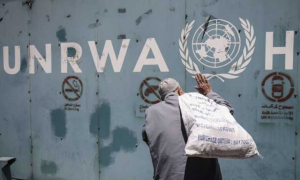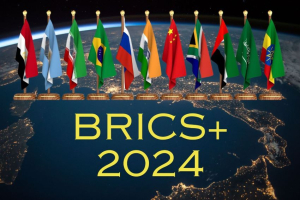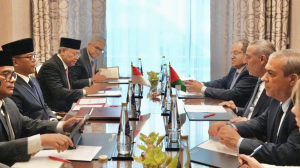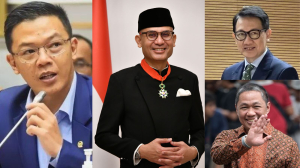Expert: Israel may derail ceasefire process with Hamas
The complicated process of Israel-Hamas ceasefire has created a potential for Israel to derail the suspension of hostility, International relations expert from Padjajaran University Teuku Rezasyah said.
He cited that theoretically the truce is a progress for Palestinians, but its implementation is very difficult.
“There is a six-week period of ceasefire that has to be implemented including an exchange of prisoners in large numbers. Besides, there is an issue of repatriated hostages. The repatriated people will have a lot of stories on how they were treated during the war, factors that may trigger Israel to stop the ceasefire process before it moves to second phase," Rezasyah spoke to Indonesia Business Post on Thursday, January 23, 2025.
He was of the opinion that current ceasefire is only a short-term strategy and tactic of Israel and that there is a possibility for Israel to derail the process.
Israel and Hamas agreed to a ceasefire in the Gaza Strip on January 15, 2025 after 15 months of conflict. The truce, mediated by Qatar, the U.S., and Egypt, took effect on January 19, 2025.
Negotiations were conducted indirectly in Doha, with both parties communicating through intermediaries due to deep-seated mistrust. The ceasefire aimed to halt hostilities, facilitate the release of hostages held by Hamas, and allow for the delivery of humanitarian aid to Gaza's civilian population.
Indonesian Foreign Minister Sugiono welcomed the ceasefire between Israel and Hamas. The minister said as quoted from his X account on January 16, 2025 that Israeli atrocities in Palestine have cost tens of thousands of Palestinian lives.
"We hope that this ceasefire can be a momentum to promote peace in Palestine. I also emphasize that peace is only possible if Palestine is independent and sovereign, in accordance with the two-state solution agreed upon by the international community," Sugiono said.
The Indonesia government has offered that it ready to contribute to efforts to restore social life in Gaza, be it through humanitarian assistance, support for the role of UNRWA, or Gaza reconstruction efforts.
Future of Gaza
Rezasyah said further that the Organization of Islamic Conference (IOC) needs to have a discussion with the Arab League, the United Nations, UNESCO and WHO on how to rebuild Gaza after the war.
“The development of Gaza after the war with Israel should be focused on education, health and culture. After the war, Israel should not be allowed to control Gaza, otherwise it will rebuild the military outposts and installations that will threaten the people of Gaza,” he cconcluded.
Already have an account? Sign In
-
Start reading
Freemium
-
Monthly Subscription
30% OFF$26.03
$37.19/MonthCancel anytime
This offer is open to all new subscribers!
Subscribe now -
Yearly Subscription
33% OFF$228.13
$340.5/YearCancel anytime
This offer is open to all new subscribers!
Subscribe now






